Beijing Opera / Peking Opera
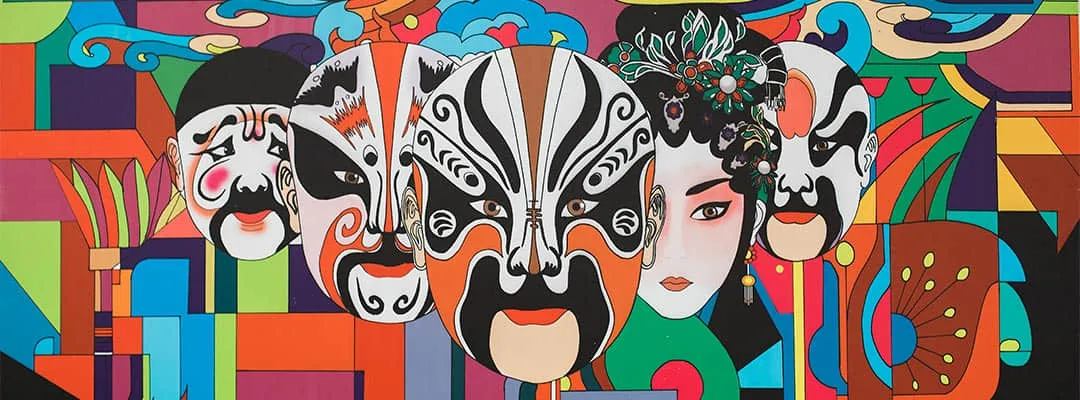
Maybe you love going to the opera or not. Or maybe you have never even been to the opera. It really doesn't matter, because Peking Opera, a quintessence of China, is quite different from western opera, and you really should give it a chance. In it you will find the essence of China, so it is fascinating, and you might really enjoy it.
(Peking is the old name for the city of Beijing, so you may also see it referred to by either name.)
The History of Peking Opera
Peking Opera is regarded as an "Intangible Cultural Heritage" of China, as declared by UNESCO in 2010. It is known by several Chinese names, such as 'Jinghuang', 'Daxi', 'Pingju' and 'Jingxi'.
Actually, Peking Opera only has a history of less than 200 years. There were other Chinese opera genres, such as Kunqu Opera, which came into existence much earlier, before the 14th century, and which was favored by the educated nobility for its elegant music and fine language. Peking Opera itself absorbed many other dramatic forms, including the local drama 'Huiban' which was popular in South China during the 18th century. Han opera was in some ways the predecessor of Peking Opera, having provided the two main melodies known as 'Xipi' and 'Erhuang'.
The real beginning of Peking Opera was in 1790, when a combined group known as the "Four Great Anhui Troupes", brought Anhui Opera, nowadays called 'Huiju', to Beijing as part of the celebrations for the 80th birthday of the Qianlong Emperor. In those days, opera was staged for the court only, and not the common people. And then in 1828 several famous Hubei Troupes came and performed together with the Anhui troupes. By 1845, Peking opera had taken shape with a style all its own.
Then only male performers were allowed to participate, with young boys playing women's roles, but from the 1870s on women started making an appearance on stage. After 1860, mobile operatic companies were spreading Peking Opera all over China, and by the end of the century it was the most renowned opera style in the country.
In the early times, the shows were performed in a teahouse courtyard, with the audience sitting all around on benches, facing each other. The audience paid for their tea, but the show, which was just side entertainment, was free, and lasted for up to 12 hours. Later the shows were performed in theatres which had benches facing the stage. Right up until 1931 it was customary for the men to sit in the stalls and women in the balconies.
The Empress Dowager Cixi (1835 - 1908), being keen on the Peking Opera, had two stages built in the Summer Palace, and a smaller one in her private quarters, and often summoned the city's most gifted artists to perform for her.
During the Boxer Rebellion (1900) all of Peking's great theaters were burned down, the old opera companies dissolved, and individual veterans struck out on their own and began to experiment with different styles, which included influences from Western drama. The performances also began to take on contemporary political themes or advocate for social reform.
Mei Lanfang, the most famous actor of Peking Opera, performed in the United States in 1930, and in Europe in 1935, as he introduced the style to the West. He also took a big risk and started teaching female students.
With the founding of the People's Republic of China (1949), Peking Opera performances dealing with contemporary and revolutionary themes were encouraged, while other topics were censored. Then, during the Cultural Revolution (1960s), Peking Opera was denounced as 'feudalistic' and 'bourgeois', and replaced with the eight revolutionary model operas as a means of propaganda and indoctrination, and artists found themselves humiliated and persecuted. But by the late 1970s traditional Peking Opera was being performed again.
On account of the decrease in performance quality of Beijing Opera and a disconnect between traditional opera and modern society, Beijing Opera saw a decline in audience numbers in the late 20th century. Use of the archaic language meant electronic subtitles were required, and the slow pacing of the drama did not appeal to a younger generation. So reforms were undertaken from the 1980s including performing new plays with modern elements. Western style makeup and beards and new face paint designs were employed. An increasing number of free performances in public areas were offered. There has also been a shift to more director and playwright control rather than being performer centered.
Now, the mainland China TV channel, CCTV 11, is dedicated to broadcasting classic Chinese opera productions, including Peking Opera to keep up with the times.
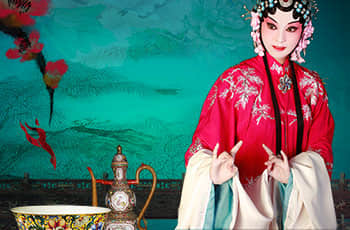 10 Famous Peking Opera Artists
10 Famous Peking Opera Artists 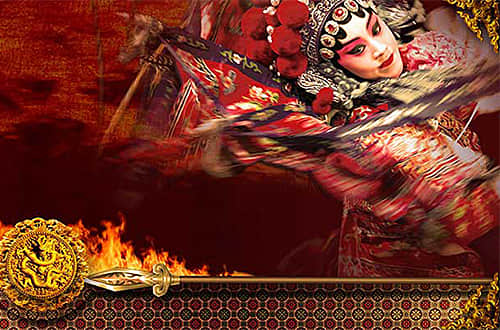 Where Can I See Peking Opera in Beijing?
Where Can I See Peking Opera in Beijing? 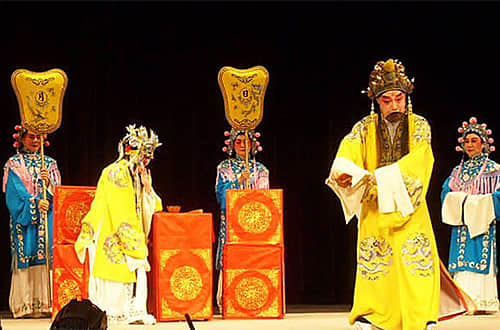 Performers and Roles
Performers and Roles 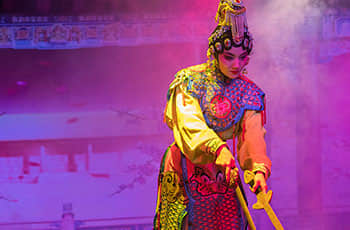 The 5 Most Popular Peking Opera Stories
The 5 Most Popular Peking Opera Stories